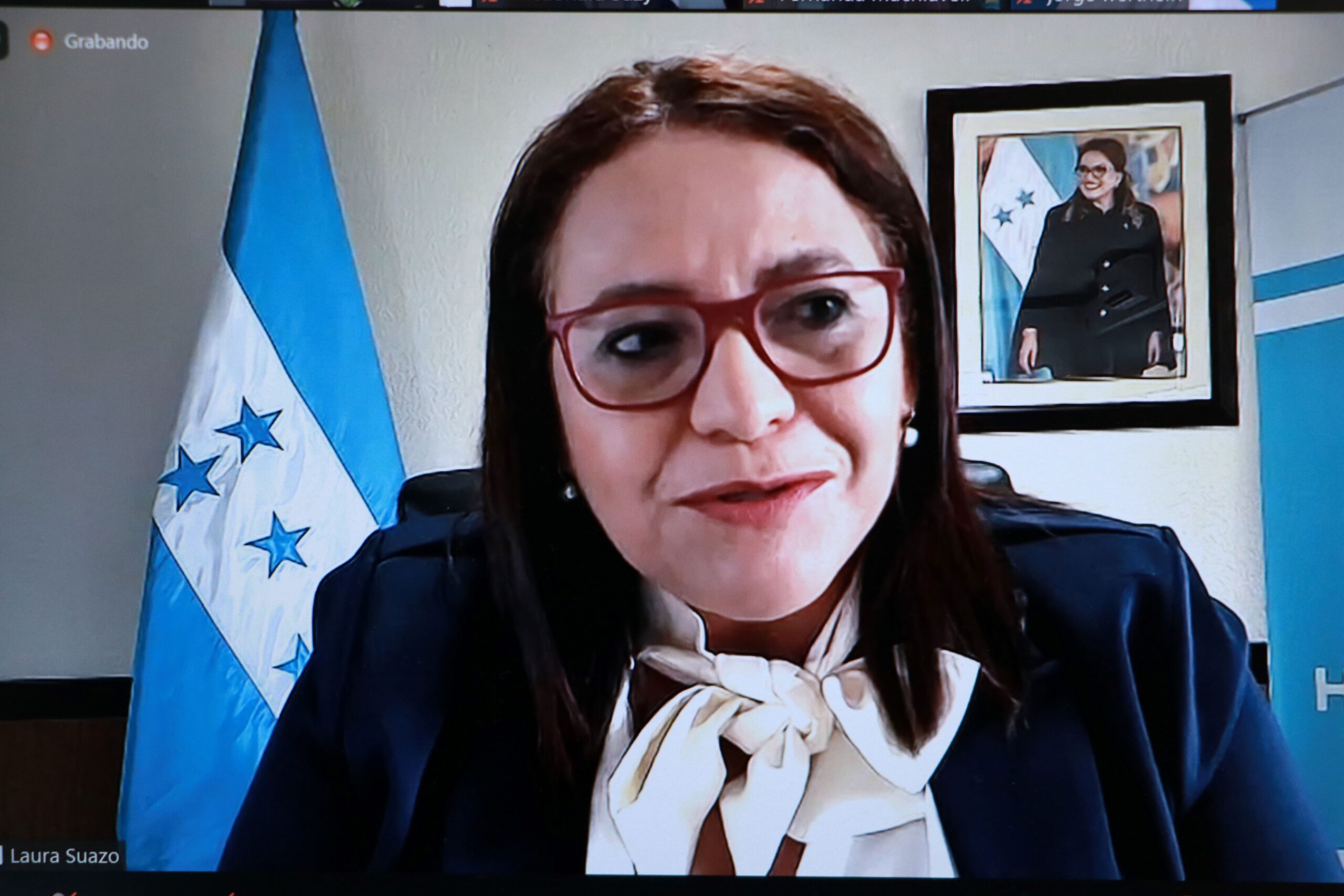During the panel discussion on “The Care Economy in the Agrifood Systems of the Americas”, Suazo stressed that, “When we speak about the care economy and its importance in agrifood systems, we are speaking about the survival of humanity”.

San Jose, 22 August 2023 (IICA) – Laura Suazo, the Secretary of Agriculture and Livestock of Honduras, stressed the importance of public policies that focus on creating opportunities through education, training and building a care culture, as a means of eliminating and reducing persistent gender gaps in agriculture.
The Honduran Secretary, one of three female ministers of Agriculture in the Americas, was participating in the IV Forum of Female Ministers, Deputy Ministers and Senior Officials of the Americas, along with her peers, Jhenifer Mojica, Minister of Agriculture and Rural Development of Colombia, and Nelly Paredes del Castillo, Minister of Agricultural Development and Irrigation of Peru. The forum was organized by the Inter-American Institute for Cooperation on Agriculture (IICA).
During the panel discussion on “The Care Economy in the Agrifood Systems of the Americas”, Suazo stressed that, “When we speak about the care economy and its importance in agrifood systems, we are speaking about the survival of humanity. This is a human, as well as a cultural and social activity, with responsibilities that should be shared by men and women”.
In this same vein, she referred to “the definite gap between the participation of men and women in agriculture and agrifood systems, which must be closed. I believe that there has always been a tendency to exclude and discriminate against women”.
The minister referred to “social conflicts, such as pandemics, wars and other events that have afforded women greater participation in the work force and in the economy”. She suggested that gaps and exclusion could be overcome by “creating more opportunities, more education and better salaries for women; by providing spaces devoted to infant care; allowing greater flexibility for women who are pregnant or nursing; setting aside areas in offices specifically for nursing, which would allow women to bring their babies to work; by providing more flexibility for women caring for elderly family members; and by introducing more programs and projects that help us to believe in ourselves, in our capabilities, skills and ability to play our part in building better societies”.
The Forum for senior female officials in Agriculture in the Americas was introduced as a permanent body in 2021. It seeks to facilitate reflection among authorities at the highest level, with a view to highlighting the role of rural women and proposing gender sensitive policies that reduce gaps and inequalities, while fostering the participation and inclusion of women in rural development, on a level playing field.
Suazo is an agricultural engineer and graduate of the prestigious Escuela Agrícola Panamericana El Zamorano, with Master’s degrees in Climate Change and Environmental Management. She received her Doctorate from Cornell University, specializing in International Agriculture and Environmental Sociology. She is one of the most respected agricultural professionals in Honduras, having served in various areas throughout her career, including in the promotion of sustainable agriculture, food security, climate change, integrated risk management and inclusive sustainable development.
Suazo is herself a farmer, having worked in her family business. Since her appointment as Secretary of Agriculture, she has been promoting organic agriculture and alternative funding as tools to eradicate poverty.
More information:
Institutional Communication Division.
comunicacion.institucional@iica.int











